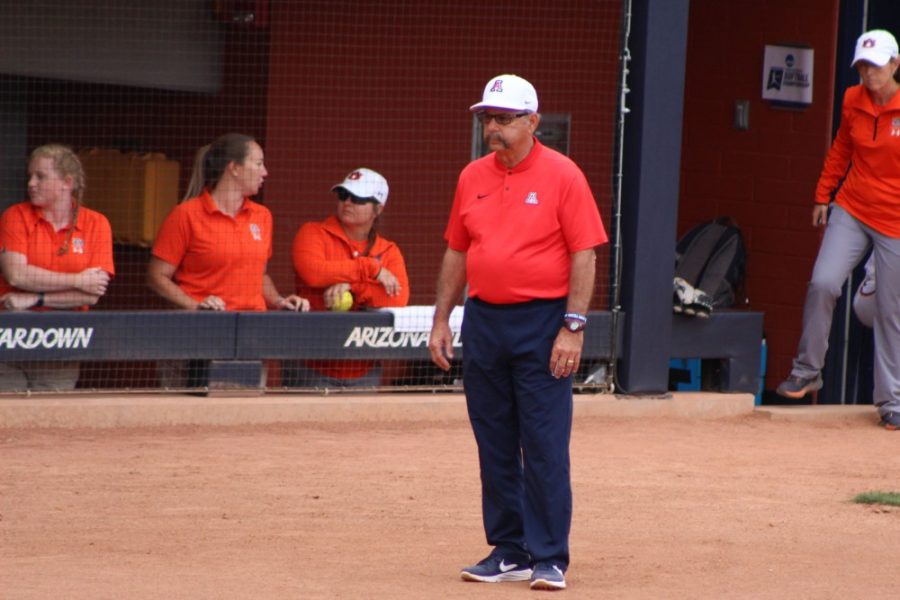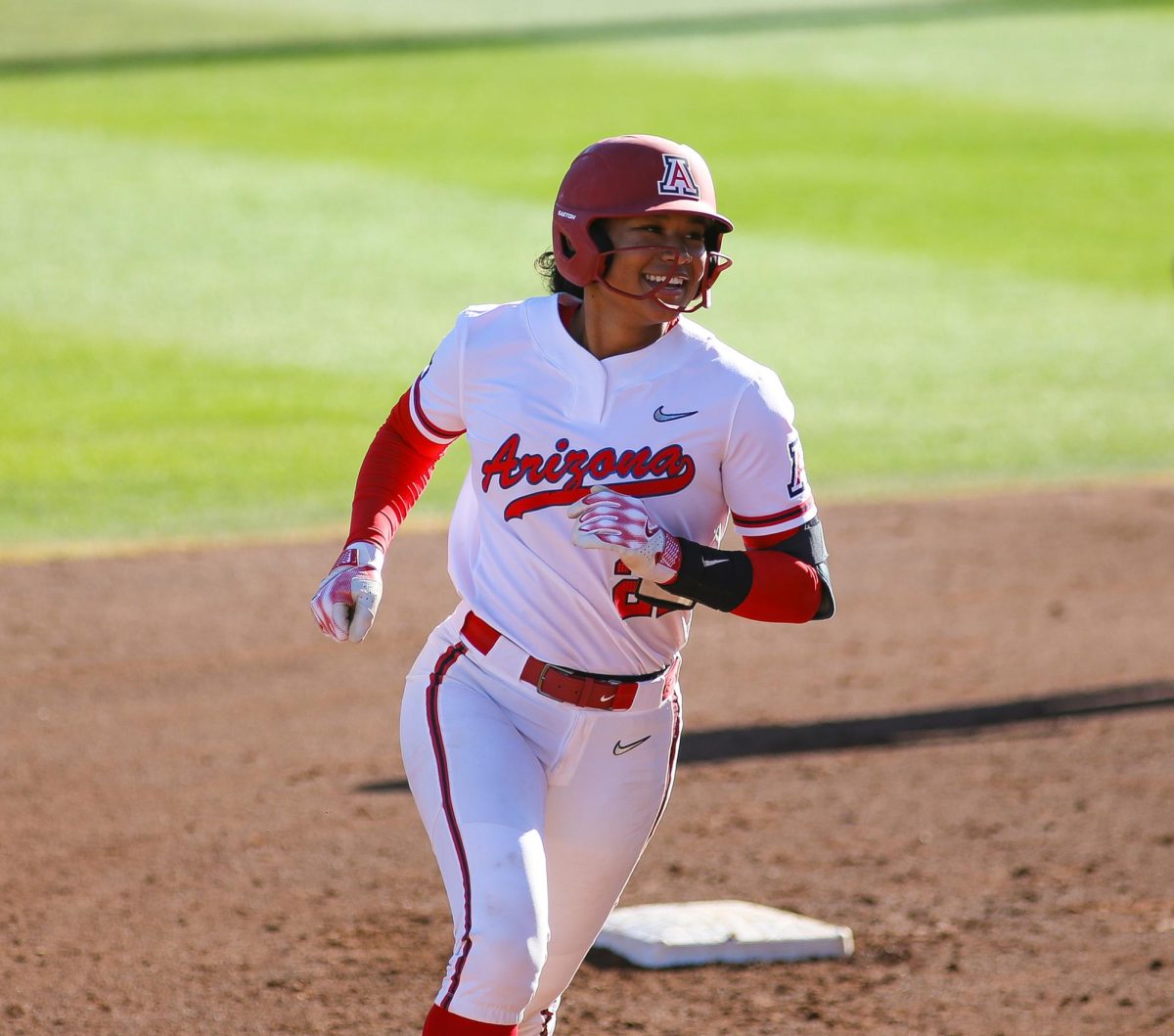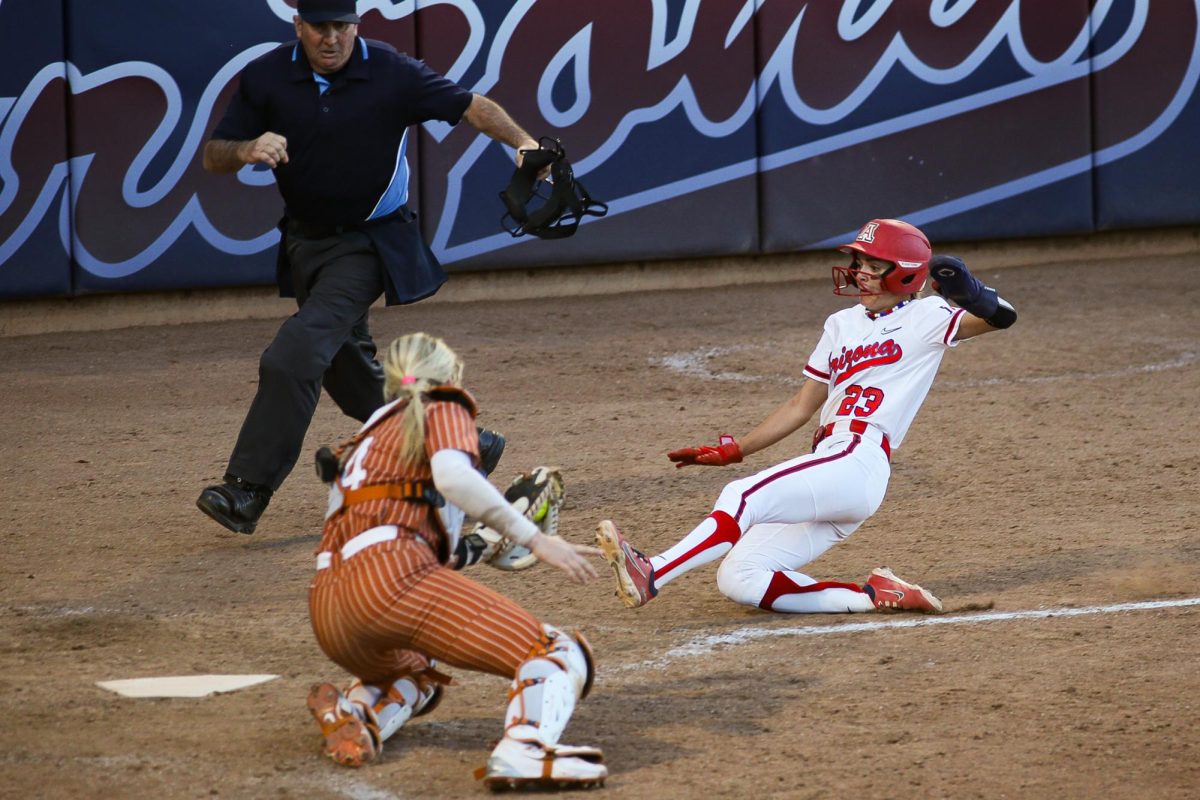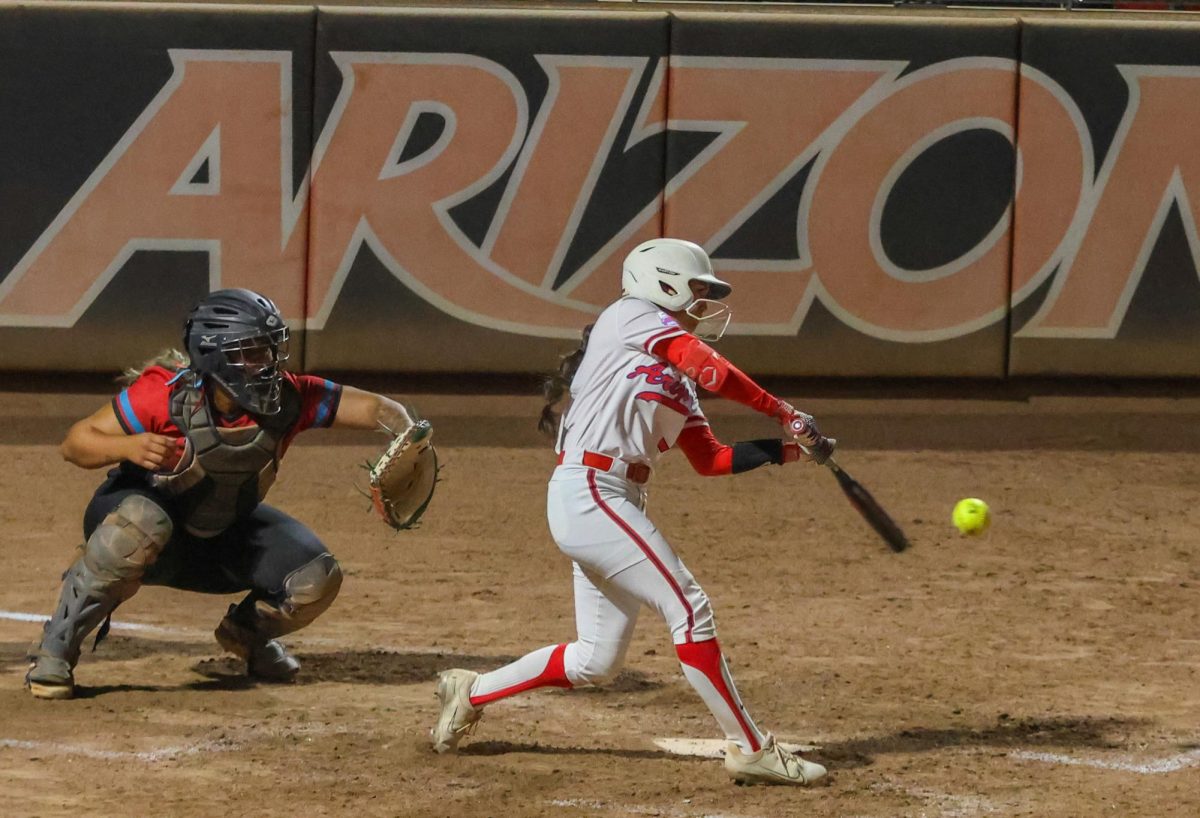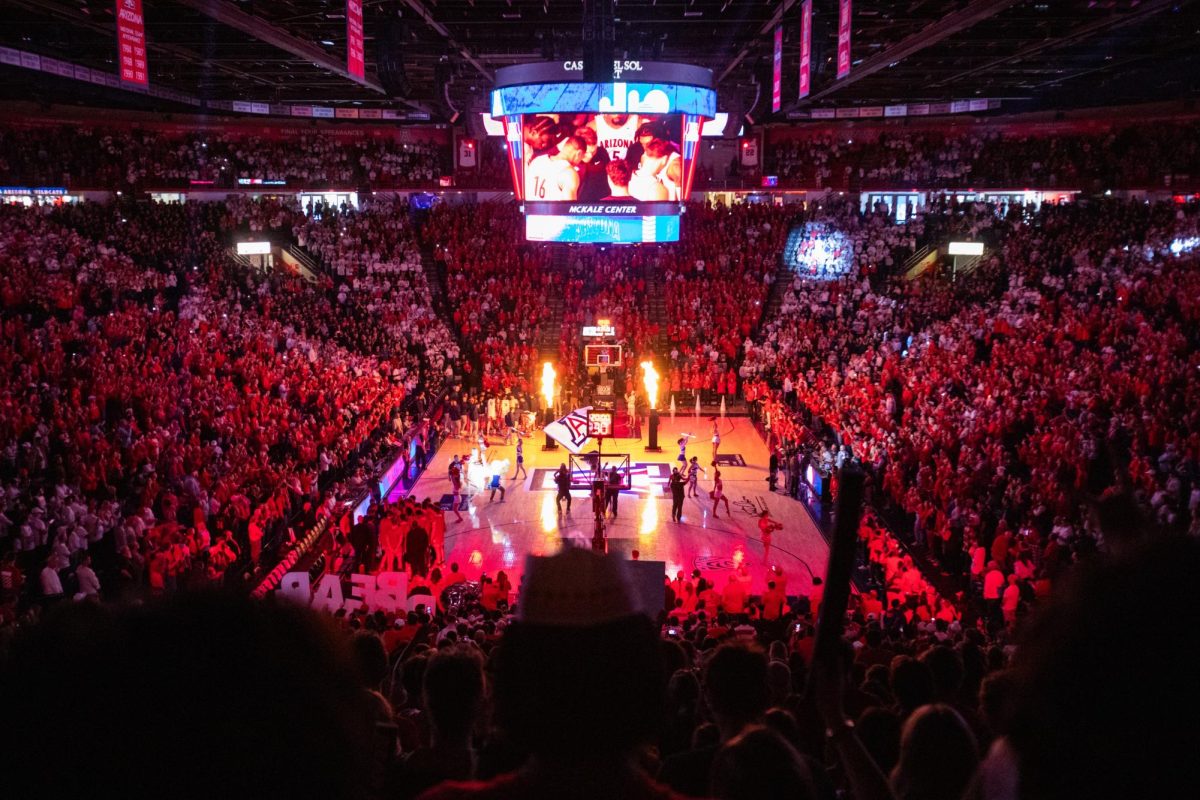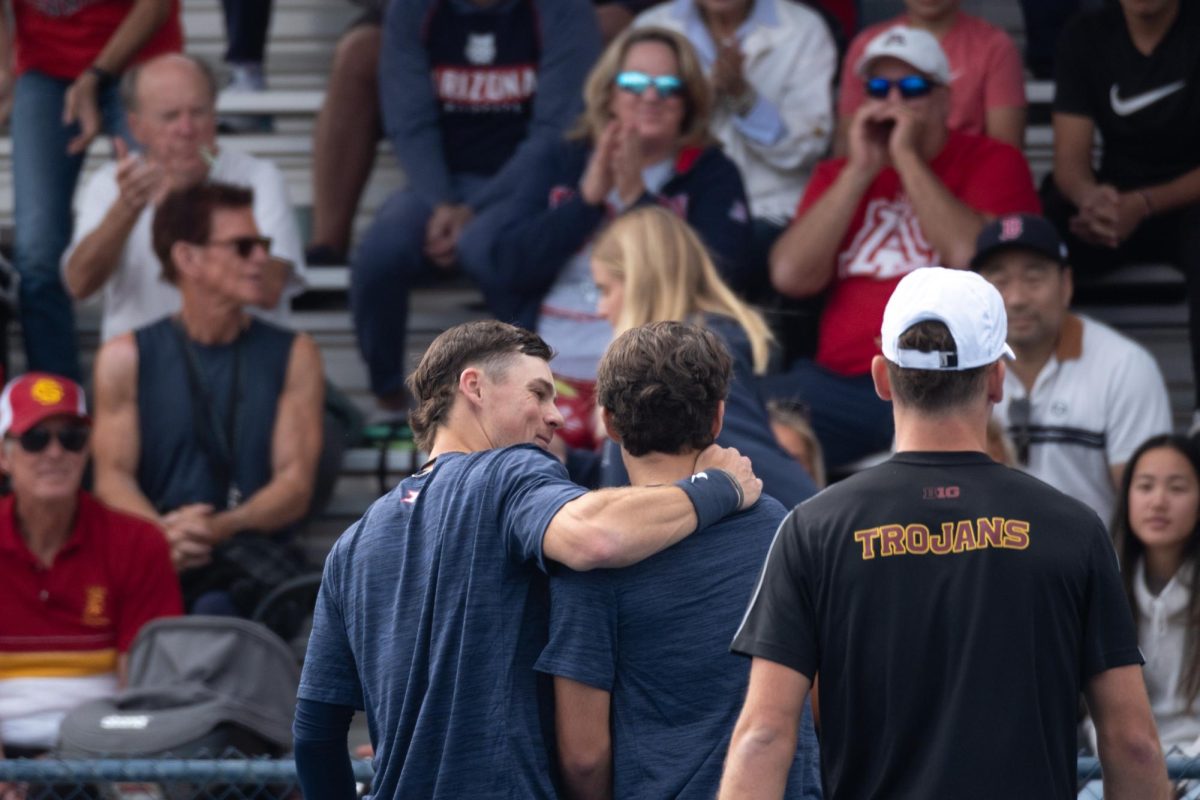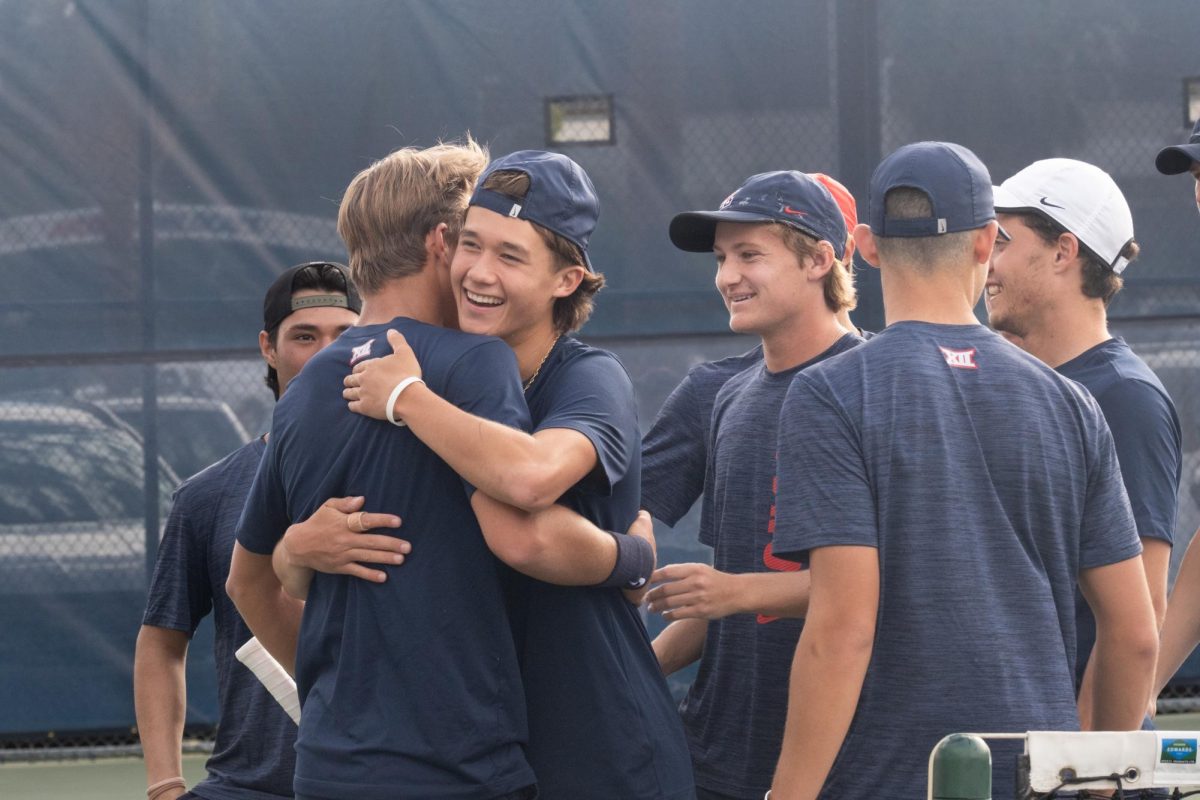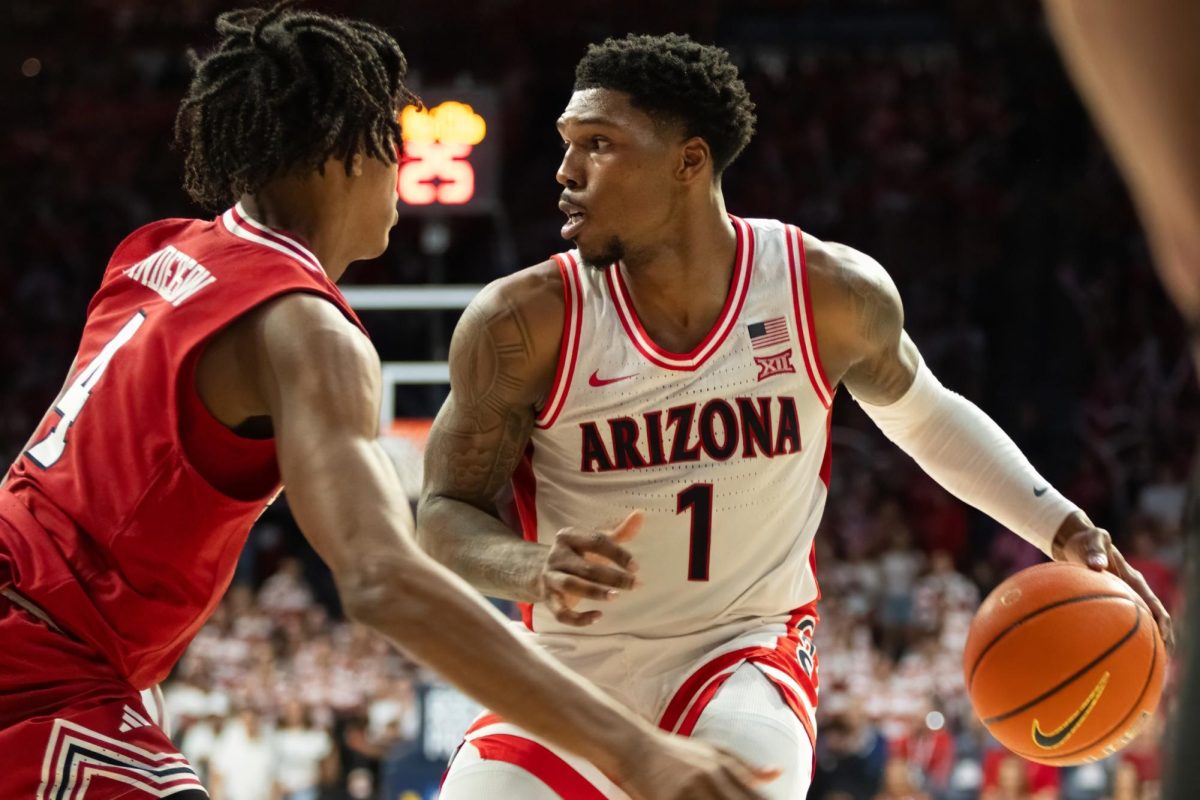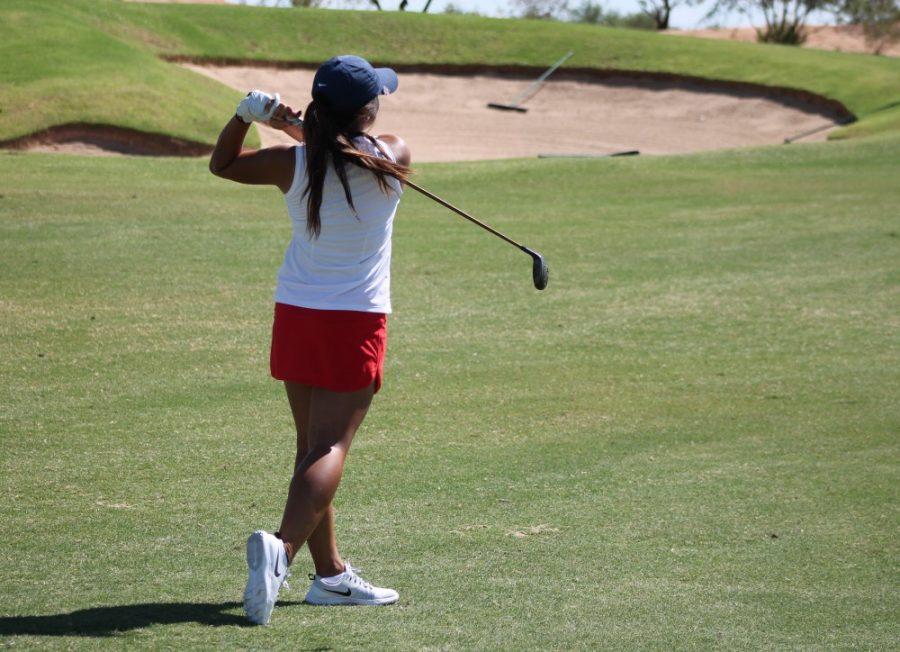Friends, family, players and many others gathered inside McKale Center to say goodbye to one of the all-time greats to ever coach the game of softball, Mike Candrea. The celebration started off with Vice President and Director of Athletics Dave Heeke speaking about how much Candrea meant to everyone at the University of Arizona.
“Today represents a celebration of excellence,” Heeke said. “We honor the legacy of a true Wildcat great, head coach Mike Candrea. The legacy of [Candrea] spans four decades. His significant impact will carry on for decades to follow. [Candrea] defined what it means to be a Wildcat. His career embodied the values of this university at the highest levels.”
While many know the incredible accomplishments Candrea had on the field, Heeke discussed off-the-field accomplishments that many may not have known.
“[Candrea] is responsible for one of the nations first softball-only facilities,” Heeke said. “[Candrea] propelled the sports popularity and helped build its national coverage. ESPN’s ever-growing national coverage of softball is not possible without [Candrea]. On top of that, [Candrea] has influenced people’s lives. [Candrea] changed them for the better. [Candrea] was a coach, mentor, leader and a key figure in the lives of hundreds of women who wore an Arizona uniform.”
After Heeke’s warm introduction, Candrea stepped up to the stand, fighting back tears trying to begin what would be the last speech he would ever give as a coach.
“I was fine until I walked in [McKale Center],” Candrea said. “It was a rough day meeting with your players, but I was honored to represent this university for so many years. I am just a gatekeeper, but I hope we made the city of Tucson proud.”
RELATED: The legacy of Mike Candrea and the impact he’s made on other coaches
Candrea went on to say that while he many not be the head coach anymore, that he will still work tirelessly to make sure the game of softball gets the respect it deserves.
“I do not think people understand the level of play you see today in college softball,” Candrea said. “My next venture is to try and get people from around the country, the world and the NCAA to realize they have a special product. Sometimes they do not take care of the product, they take care of everything else. A good example is we compress our world series in four days with eight teams. Yet, another sport gets two weeks to do the same thing.”
After speaking about the present, Candrea took a trip down memory lane and discussed how his career in softball began at Central Arizona College. However, it first began with Candrea as a baseball coach.
“My first year of coaching was in 1976 in baseball, and we won a national championship,” Candrea said. “I was thinking to myself that this was a pretty easy gig. Then I had a gentleman named George Young walk into my office one day. [Young] was a four-time Olympian from the UA and won a bronze medal in Mexico City [in 1968]. One day he walked into my office and said he needed my help, and I said I would do anything for him. He told me that he wanted me to coach the women’s softball team. I told him that I did not know if I wanted to coach softball and that I did not know much about softball.”
After coaching the team for a year, Candrea saw championship potential and went out and recruited the player that would take the team over the top.
“I went out and recruited Connie Clark,” Candrea said. “[Clark] was the first pitcher I actually watched. I remember going to Sun City, Arizona, to watch this game with the Sun City Saints. I was totally impressed with [Clark], but I figured someone has got to be recruiting her. I figured the worst she could say was no. I got her to come to Central Arizona College, and we won back-to-back championships. Then I got an opportunity to come to the University of Arizona.”
It was such an honor for Candrea to get a call from the UA that, to him, the finer details did not matter.
“I remember the day that I got the job,” Candrea said. “I did not care what they were paying me, I just wanted an opportunity to coach at the Division I level. I thought this was heaven.”
Candrea then moved into the final part of his speech where he thanked many who made his coaching experience possible.
“I am here today to thank a lot of people,” Candrea said. “First of all, I want to thank my mom and dad. They are not here today, but they are looking down upon us. I want to thank my wife, Tina, for putting up with me. It is not easy to marry someone and not know anything about softball, and then get thrown into the Olympic Games. [Tina] has been a rock for me and has put up with a lot. Truthfully, that is one of the reasons that I came to my conclusion that it is probably time to retire. I could try and make up for lost time with my family members.”
Many would agree that after all Candrea did for the university that he has earned the right to step into retirement.
Farewell, coach Candrea.
Follow Sean Fagan on Twitter



